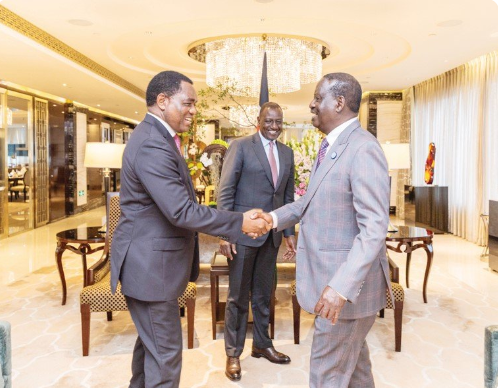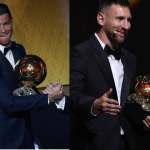In a grand and ceremonious reception, China has welcomed over 50 African leaders to Beijing this week for a summit aimed at bolstering ties amidst growing global political and economic instability.
“It appeals to their vanities,” Macharia Munene, a Kenya-based professor of international relations tells the BBC, referring to the red carpet welcome – spiced up with entertainment by dancers in colourful costumes – that the leaders received.
The presentation was meticulously arranged to convey a sense of equality among the leaders. Notably, figures such as South Africa’s President Cyril Ramaphosa and Kenya’s William Ruto had private meetings with Chinese President Xi Jinping and were given tours of Beijing and other key cities central to China’s development before the summit.
According to Prof. Munene, China’s objective is to demonstrate to African leaders that “we are in the same boat, we are all victims of Western imperialism.” Paul Frimpong, executive director of the Africa-China Centre for Policy and Advisory in Ghana, notes that Western powers and affluent Gulf states are actively working to counterbalance China’s influence in Africa.
Africa’s poptential
“There is a keen interest and competition in and around what Africa’s potential is,” he tells the BBC.
Cobus van Staden, co-founder of the China-Global South Project, writes that China goes out of its way to emphasise its own status as a developing country, signalling solidarity with Africa and the rest of the Global South.
“It avoids the dreariness of the US and EU’s ongoing aid focus with its attendant conditionality and preaching,” he adds.
Over the past twenty years, China’s diplomatic efforts have yielded significant results, positioning it as Africa’s largest trading partner. According to the International Monetary Fund (IMF), China now receives a fifth of Africa’s exports, primarily consisting of metals, minerals, and fuel.
Since 2001, these exports have increased fourfold in U.S. dollar terms. China is also the “single largest source of imports” for African nations, particularly in manufactured goods and machinery. However, the trade balance often heavily favors China. This imbalance was a key issue that South Africa’s President Cyril Ramaphosa aimed to address during his meeting with President Xi Jinping.



